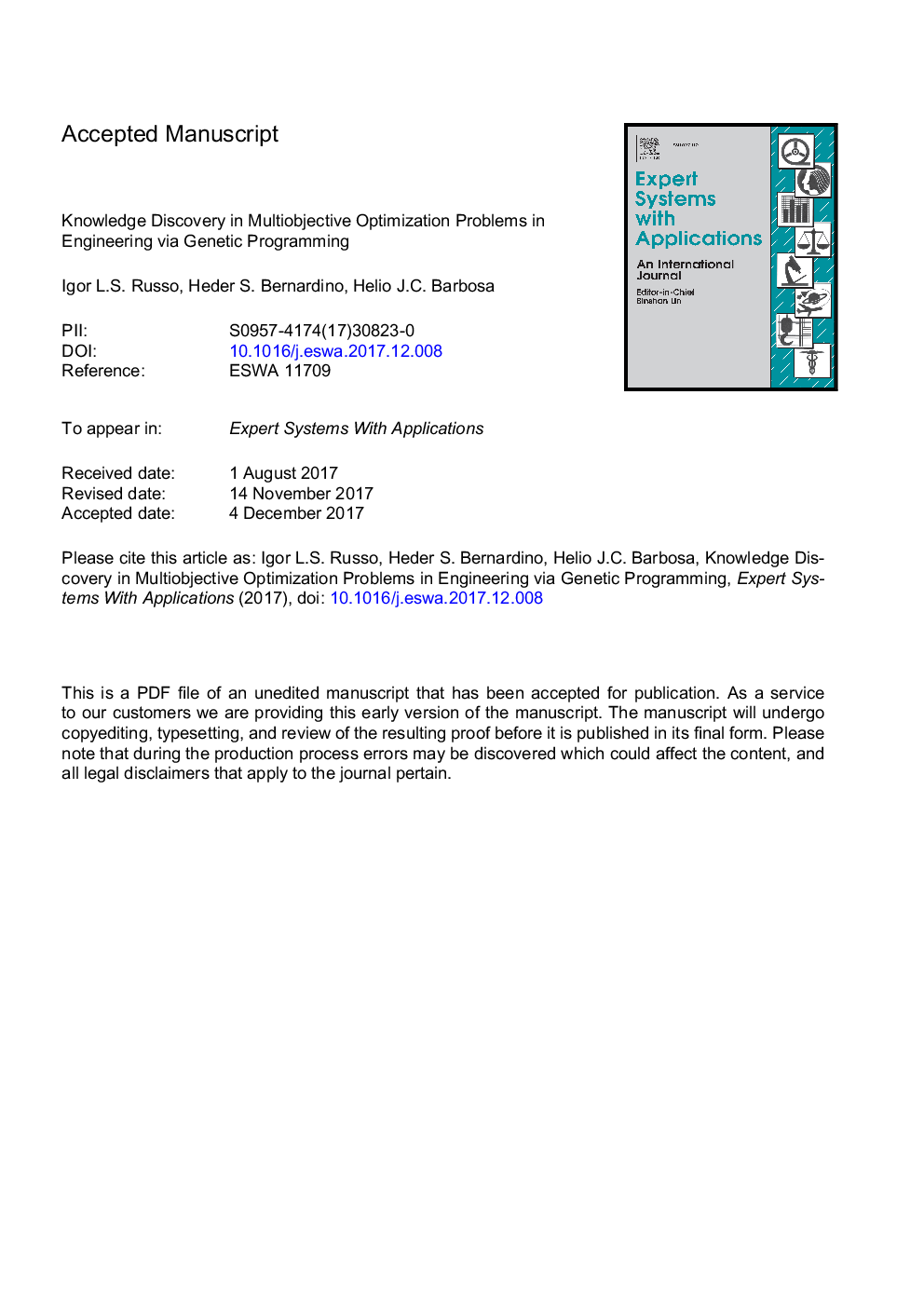| Article ID | Journal | Published Year | Pages | File Type |
|---|---|---|---|---|
| 6855134 | Expert Systems with Applications | 2018 | 34 Pages |
Abstract
Recently, the interest of the researchers has grown in post-optimality analyses, with the search for intrinsic properties of the optimal solutions of a given problem. Innovization has been defined as a process of knowledge discovery, in the form of mathematical relationships between variables, objectives, constraints, and parameters, from the output of an optimization problem. Genetic Programming (GP) is a bio-inspired metaheuristic capable of automatically evolving programs that can be used in this process. In spite of its wide applicability, GP techniques can present some issues when tackling knowledge discovery problems. Here, three modifications are proposed in a GP technique available in the literature for Innovization problems: (i) a method to ensure the consistency of the units of the principles using protected operations that ignore invalid terms, (ii) a strategy to avoid trivial solutions, and (iii) the use of an external archive to store the solutions of interest found during the search. Computational experiments are presented using four engineering case studies (namely, a two-member-truss, a welded beam, the cutting of a metal part, and a composite gear) to verify the capacity of the proposed GP method in finding design principles.
Related Topics
Physical Sciences and Engineering
Computer Science
Artificial Intelligence
Authors
Igor L.S. Russo, Heder S. Bernardino, Helio J.C. Barbosa,
